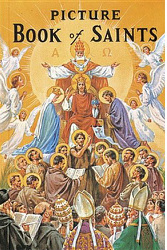
In Wouk’s novel, the protagonist (Navy Captain Victor Henry) finds himself and his family whipped about by the “winds of war.” His sons get blown about the globe in fighter planes and submarines, his wife gets tossed into marital infidelity, and Henry himself undergoes an emotional tempest with a pert RAF nurse. The war continues to throw Henry and the young nurse together, and Henry’s fidelity is sorely tested. I found myself holding my breath, hoping the fictional character would remain faithful to his family. My hopes were rewarded, for the book ends with Henry refusing to commit adultery, determined to set out upon the long and hard road of winning his wife back. He resolves to fight for his family rather than submit to the random winds lashing at his feelings. The book’s conclusion was solid and hopeful, affirming that marriage is worth defending, and can be defended, no matter which way the winds blow.
I wondered if there was a sequel. Indeed, I found, Wouk continues the narrative in War and Remembrance. Before buying the book, I read a synopsis. Does Henry in fact restore his marriage and keep his family together? Sadly, he does not. The war keeps husband and wife apart, and each eventually commits adultery. They divorce each other and marry the objects of their desires. I decided not to read the sequel, as much as I enjoyed the first book. It would be too sad to travel that dreary path through the breakdown of yet another family.
Most marriages end in divorce, and one could say that the second novel only reflects the sad reality of our time. But literature’s noble purpose is not to relate the same old tale of human failure. Good literature paints a broader horizon, and gives readers hope for man’s innate nobility. Good tales have happy endings, because God has given a happy ending to human history. Literature should inspire us to believe in the salvation Christ has won for us, and in the heroic virtue He makes possible.
In general, literature should imitate the greatest tales of all: the lives of the saints. St. Ignatius of Loyola discovered that the romance literature of knights errant compared poorly to the lives of the saints. He gave up on romance fiction, because it left him sad after the excitement of reading was done. He began reading the tales of real people who dared follow God’s will to a heroic degree. Fictional characters need not all wear halos, of course, but the protagonist in any novel should in the end find himself capable of heroic virtue. Most of us, statistically, will get divorced. Most of us fail a lot of the time. But there’s no need to wallow in our failures. The best books portray nobility and hope in their characters.
I recommend reading the lives of the saints along with all the other stories we read or watch. It is a sadly-neglected Catholic practice, but reading even one biography of a saint gives scope and meaning to all the other stories. The Church has canonized over 6000 men and women, proposing the bright heroism of their lives to us all who will read them. Go to your favorite book source, whether it be a library or a bookstore or an internet site, and get some tales that will make your feel good in the reading, and even better after you have read them. My favorites are:
- The Story of a Soul (St. Thérèse of Lisieux)
- The Little Flowers of St. Francis (St. Francis)
- Something Beautiful for God (Blessed Mother Teresa)
- A Man for Others: Maximilian Kolbe, the "Saint of Auschwitz" (St. Maximilian Kolbe)
- Witness to Hope (Blessed John Paul II)


 RSS Feed
RSS Feed